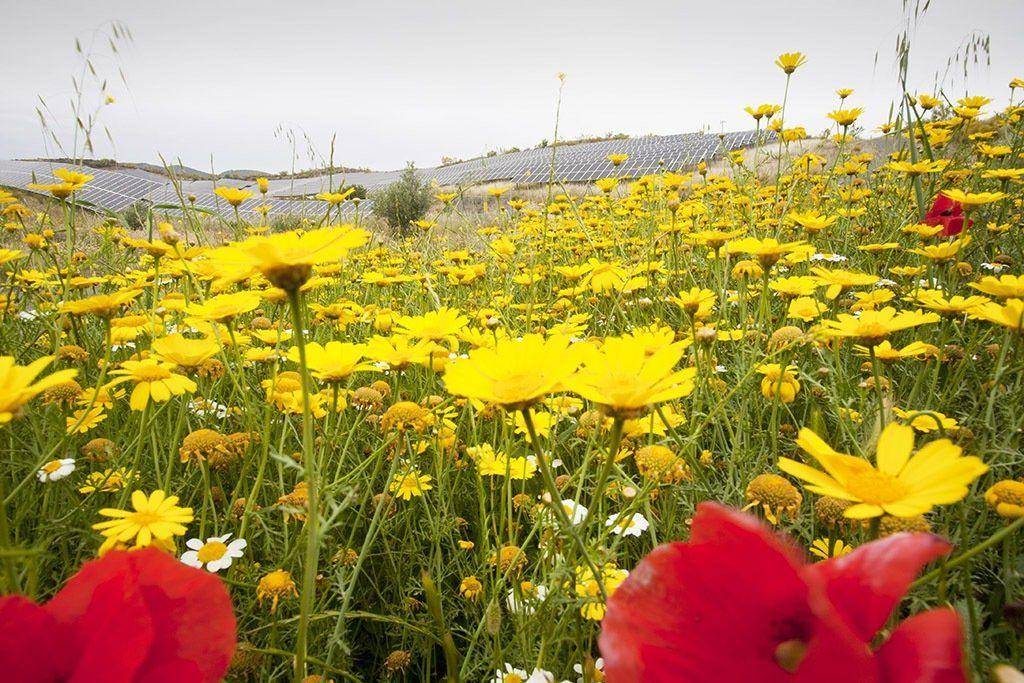
Bernadette Fischler, Head of Advocacy for the 2020 Project at WWF-UK, tells us why 2020 will be a crucial year for the environment and, since we all depend on the natural world, why it will an important year for us too.
Read more
Related articles for further reading
Bernadette Fischler, Head of Advocacy for the 2020 Project at WWF-UK, tells us why 2020 will be a crucial year for the environment and, since we all depend on the natural world, why it will an important year for us too.
We need to stop destroying our precious environment and start to restore nature so it can keep providing us with essentials such as food, timber, water and clean air. Otherwise we risk losing the life support system offered by our shared home.
Bernadette Fischler is Head of Advocacy for the 2020 Project at WWF-UK
2020 will be a crucial year for the environment and, since we all depend on the natural world, it’ll be an important year for us too. It’s a time for important actions and decisions that will impact people everywhere for generations to come. We need to stop destroying our precious environment and start to restore nature so it can keep providing us with essentials such as food, timber, water and clean air. Otherwise we risk losing the life support system offered by our shared home. We must make sure the loss of nature is being reversed by 2030 and restore it to more sustainable levels by 2050.
Let’s get nature higher on the agenda
We’ve got a big task for 2020 and it’s too urgent and important to ignore − we need world leaders to do the right thing and it’s up to all of us to make sure they take action and are held to account.
We’ve succeeded before in getting important decisions agreed on environmental issues − back in 2015 when the climate change agreement was signed in Paris and when the Sustainable Development Goals were agreed at the UN. So we can do it again! We need to build on those successes and push nature to the top of everybody’s to-do list.
Why is 2020 different to any other year?
Time is running out. We’re losing biodiversity – the precious web of life – which means we’re losing wildlife and nature. In my lifetime we’ve lost two thirds of global wildlife populations and carbon emissions have risen by 90%. To pull our planet back from the brink of collapse, we need to put an end to this, starting in 2020.
I call 2020 the ‘super year’ because for nature, and therefore for us humans, this is the year it could all change. There are two significant reasons why 2020 matters:
1) If we want to reverse the trend of nature loss by 2030, we need urgent action in 2020. It will take some time to turn this ship around so we need to start now to restore nature so that people and wildlife − that so depend on nature − can thrive now and in the future. And we need everybody – individuals, citizens, governments, businesses, mayors, everybody – to step up in 2020 and take urgent action to protect and restore nature, before it’s too late.
2) 2020 is also the year of important global moments for the environment. And if we manage to push decision-makers to achieve positive results in all those meetings, we will help create a more sustainable future.
Those moments include:
● The 75th birthday of the UN which is celebrated during the opening of the UN General Assembly (UNGA) in September 2020 in New York as well as the Biodiversity Leaders’ Summit which might take place at the same time and place. These will provide prime opportunities for world leaders to declare that it is no longer acceptable to continue to degrade our planet and that urgent action to restore nature starts now.
● The UN deciding on a new 10-year framework for biodiversity under the UN Convention on Biological Diversity (CBD) at its 15th Conference of Parties (COP-15) in October 2020 in Beijing. These goals and targets need to set the path for nature recovery around the world and reflect the reality that healthy economies and societies are dependent on healthy natural systems.
● At the 26th Conference of Parties (COP-26) of the United Nations Framework Convention on Climate Change (UNFCCC) in December 2020, countries will have the opportunity to enhance their national action plans to ensure that the goals of the Paris Agreement are achieved. Currently, country plans do not add up to keeping global warming below 1.5 or 2 degrees which is necessary to avoid catastrophic change. So we need more ambitious plans that also recognise the critical links with restoring natural systems and achieving sustainable development.
● Some of the environmental targets under the Sustainable Development Goals (SDGs) will expire in 2020. At the High Level Political Forum (HLPF) in July 2020 in New York, countries need to extend them meaningfully up until 2030, the overall deadline of the SDGs and recognise that achievement of the SDGs will depend on successfully restoring natural systems and addressing climate change.
We have about 1,000 days until the end of 2020. We’ve got a lot to get done in that time, so we better get started. And I know we can do it, if we put our minds and hearts into it!
Find out more about the unmissable opportunity for the world to change direction in 2020.
Check out WWF’s report on how climate change impacts on species in our ‘Wildlife in a Warming World’ report.
